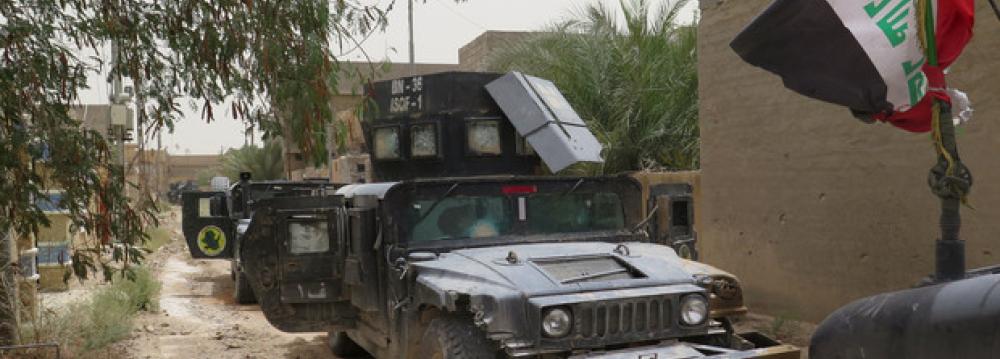Iraqi government forces have retaken most of the city of Fallujah from the self-styled Islamic State terrorists who have held it since January 2014, officials say.
US Defense Secretary Ash Carter said there was “still some fighting to be done” as IS still controls a significant part of the city.
But Iraq’s prime minister hailed the day’s events as a “liberation”. A senior army spokesperson said he expects IS to “suffer a total breakdown during the next hours”, BBC reported
“The enemy is collapsing. They have lost control of their fighters. They are on the run now,” Lt. Gen. Abdul Ameer al-Shammari said.
Special forces commander Brig Haider al-Obedi told AP that his troops controlled 80% of the city.
Fallujah, only 50 km west of Baghdad, has been held by IS for longer than any other city in Iraq or Syria. Iraqi forces said on Friday that they had retaken Fallujah’s main government compound as well as southern and eastern areas.
Iraqi Prime Minister Haider al-Abadi said only small numbers of militants remained. Speaking on state TV, he said: “We promised to liberate Fallujah and we took it back. Our brave forces went into Fallujah and took control of the city center.
“There are still some pockets that need to be cleared in the next few hours. I directed all the government institutions to mobilize all efforts to help civilians and provide humanitarian aid to them.”
Al-Abadi tweeted that the city had “returned to the nation” and Daesh (another name for IS) would be defeated. He also said Mosul was “the next battle”. The northern city has been under IS control since 2014 and the Iraqi Army launched an operation in March aiming to retake it.
Government forces launched the offensive to take back Fallujah almost four weeks ago, after besieging the city and its suburbs for several months.
The UN says about 68,000 people have now fled Fallujah since the government offensive began on May 23, although Medecins Sans Frontieres and the Norwegian Refugee Council (NRC) put the figure at closer to 30,000. The NRC has warned its supplies of emergency aid for them are running low.


